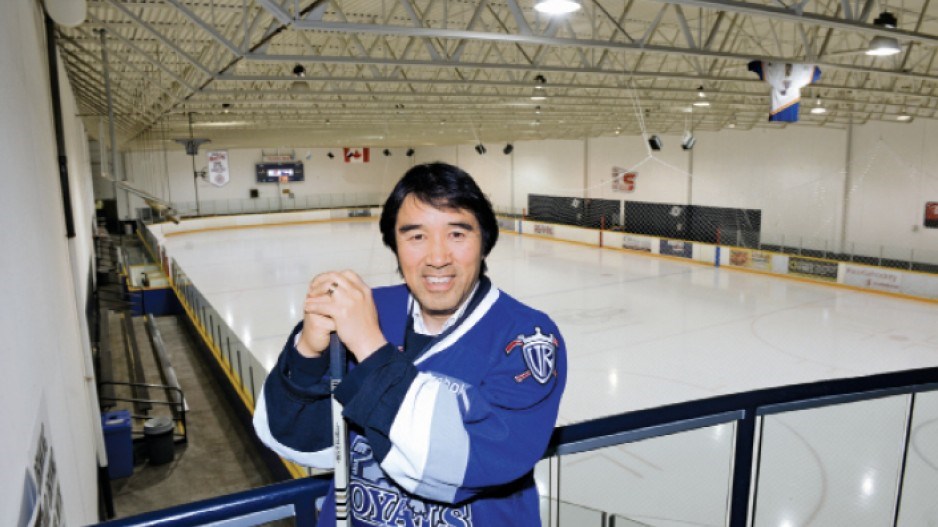Odds are that the Aquilini family has made a bundle owning the National Hockey League’s (NHL) Vancouver Canucks, but the prospect of doing the same by owning a junior hockey league team is sketchy at best.
The American Hockey League’s Abbotsford Heat needed millions of dollars in annual city subsidies to break even. The City of Abbotsford then announced earlier this month that it would give the team $5.5 million to break its contract to stay in the Fraser Valley and instead move to upstate New York.
“It’s like paying to be a member of a golf club,” said former Canuck sniper Darcy Rota, who, until last September owned a slice of the British Columbia Hockey League (BCHL)’s Coquitlam Express, along with several other NHLers.
He and his partners sold the team to Vancouverite John Stevens and several other Canadians now living in Hong Kong.
Ownership, Rota said, comes with camaraderie, community involvement and the joy of seeing young players improve and advance to the next level.
Now president, Rota watched his team win the BCHL championship April 15 and is following its play this week in the Western Canada Cup. If the Express become western Canadian champions, the team gets to play at the national championship RBC Cup in Vernon in June.
“Our goal was always to break even, and we came close so there were no complaints,” he told Business in Vancouver.
Vancouver Giants majority owner Ron Toigo shares Rota’s sentiment.
He added that owning a team is fun when the team does well – especially when you own the team with friends. Hockey great Gordie Howe, crooner Michael Bublé and former Canucks general manager Pat Quinn are among many Giants minority owners.
“The way to make a small fortune owning a junior hockey team is to start with a large one,” Toigo joked.
His Western Hockey League (WHL) Giants won its national championship – the Memorial Cup – in 2007, when Vancouver hosted the tournament.
The team back then racked up six-figure profits but has since slid into the red. That’s in part because WHL team owners pay university tuition for players who don’t graduate to the NHL, and there are more former Giants players in university today than there were in 2007, when the team was five years old. Toigo has not hiked Giants ticket prices because he wants the games to stay affordable for families.
“You don’t get into this business to make money,” agreed GSL Holdings principal Graham Lee, who owns the WHL’s Victoria Royals, which play in the Save-On-Foods Memorial Centre that GSL built and operates under a public-private partnership.
Controlling the arena helps Lee maximize revenue, but not enough to make the Royals profitable, Lee told BIV.
“You do this for the love of hockey,” he said.
Owning a junior hockey team is also a fit for Lee because GSL owns several Planet Ice recreational ice complexes. The more interest kids have in playing hockey, the better that business does.
WHL teams are more expensive to operate than BCHL teams, according to Moray Keith, who has owned both. He estimates that BCHL budgets tend to be in the $1.1 million range while WHL budgets are double that.
The main difference between the leagues is that BCHL players are not paid, whereas WHL players get monthly spending allowances in the $600 range.
Owners in both leagues pay for player lodging, staff salaries, arena rent, transportation, hotels and equipment costs, which have been rising at several times the rate of inflation.
While WHL owners are also expected to cover university tuition for players who don’t make the NHL, BCHL players frequently graduate to play hockey at U.S. National Collegiate Athletic Association (NCAA) colleges on scholarships. WHL players are not eligible to play on NCAA teams because they have played against “professional” players who have earned spending allowances, said Keith, who owns the BCHL’s Chilliwack Chiefs. •




